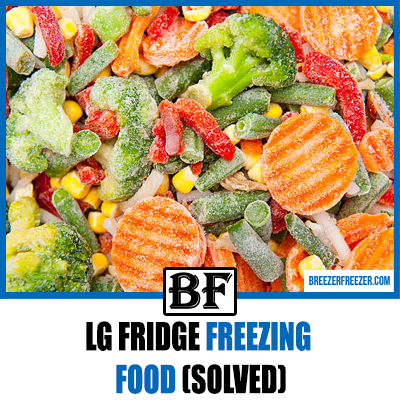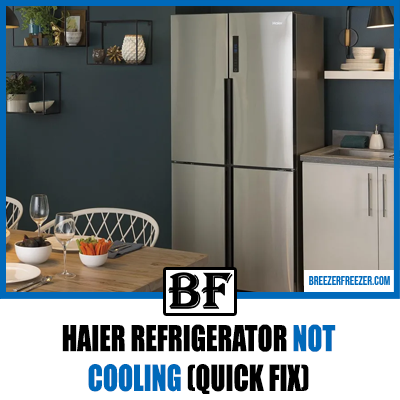7 Common Samsung Twin Cooling Fridge Freezer Problems!
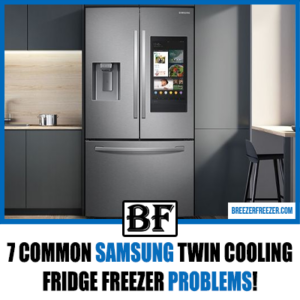
Samsung’s Twin Cooling technology is renowned for its energy efficiency, humidity control, temperature regulation, and odor isolation. However, like any appliance, it can sometimes encounter problems.
This guide will help you diagnose and resolve common issues with your Samsung Twin Cooling fridge freezer, including problems with the fan, ice maker, and cooling system, as well as noise issues and complete failure.
Common Issues and Their Solutions
Samsung Twin Cooling Fridge Freezer Fan Not Working
If the fan in your Samsung twin cooling fridge freezer stops working, there are a few potential reasons:
- Loose fan: A loose fan will not function at all.
Fix: Check if the fan is loose and tighten it before restarting the refrigerator.
- Burnt motor: In extreme cases, a burnt motor can cause the fan to stop working.
Fix: Replace the burnt motor with a compatible replacement, such as the Samsung DA31-00146E Motor.
- Ice buildup: Ice accumulation around the fan can also prevent it from functioning properly.
Fix: If there is excessive ice around the freezer fan, follow these steps to defrost it:
- Turn off the Samsung refrigerator.
- Remove the ice tray/bucket.
- Use a hairdryer, hand steamer, or other heat source to melt the ice.
- Press the reset button on the refrigerator to reboot the unit.
- Return the ice tray/bucket and power on the unit.
Samsung Twin Cooling Fridge Freezer Ice Maker Not Working
If the ice maker in your Samsung twin cooling fridge freezer is not working correctly and freezing up, power outages may be the cause.
Fix: To address a malfunctioning ice maker, follow these steps to unfreeze it:
- Turn off the Samsung unit.
- Remove the ice tray/bucket and melt the ice using a hairdryer or similar tool.
- Press the reset button on the ice maker to reboot it.
- Return the ice tray/bucket and power on the unit.
- If available, use the “forced defrost” option to defrost the unit without disassembling it forcefully.
Samsung Twin Cooling Fridge Freezer Not Freezing
If your Samsung twin cooling fridge freezer is not freezing, there are several potential causes:
- Onboard error: Errors in the refrigerator’s internal computer setup can prevent the freezer compartment from functioning properly.
Fix: Try rebooting the entire refrigerator by unplugging it from the power source for 30 seconds or flipping the circuit breaker off and on. If this doesn’t work, wait for 30 minutes before plugging the unit back in.
- Improperly defrosted evaporator: If the evaporator is not adequately defrosted, it may not generate sufficient cold air to freeze items properly.
Fix: Remove the freezer’s back panel and check for excessive frosting. Defrost the evaporator if needed.
- Fridge freezer near a heat source: Proximity to a heat source like a fireplace or direct sunlight can affect the freezer’s ability to reach the freezing temperature.
Fix: Move the Samsung twin cooling unit away from any heat sources to prevent interference with the freezing process.
- Lack of clearance: Insufficient clearance around the unit can hinder proper air circulation, impacting its performance.
Fix: Remove any obstructions that could block air circulation and ensure the unit is at least 2 inches away from the wall.
- Compressor issues: If the compressor is overheating or the fan is defective, it may impact the freezer’s performance.
Fix: Allow the unit to sit unplugged for a few hours to cool down if the compressor is overheating. If the issue persists, consider replacing a defective fan motor.
- Incorrect freezing temperature: Incorrect temperature settings or enabling the “Child Lock” feature can affect the freezer’s ability to freeze properly.
Fix: Check the temperature settings and adjust them if necessary. Ensure that the “Child Lock” feature is not activated.
- Clogged condenser coils: Dirt accumulation on the condenser coils can hinder the freezer’s performance.
Fix: If your Samsung twin cooling fridge freezer is not working at all, there are a few potential reasons for the issue. Consider the following tips to troubleshoot and resolve the problem:
- Clean the condenser coils: Dirt accumulation on the condenser coils can affect the freezer’s performance. Follow these steps to clean the coils:
- Unplug your Samsung unit from the power source and move it away from the wall.
- Gently vacuum the coils to remove any loose dirt and debris.
- Use a hard bristle brush, such as the Vanitek Dryer Vent Cleaner Lint Brush, to scrub off stubborn dirt from the coils.
- Vacuum the coils again to ensure they are clean.
- Move the appliance back to its original position and power it on.
- Check for overstocking or understocking: If the fridge freezer is overstocked, it can block the vents and interfere with cold air circulation. On the other hand, if there are too few items, cold air may escape.
Fix: Reevaluate the contents of your fridge freezer to ensure it is neither overstocked nor understocked.
- Thawing Issue in Samsung Refrigerator When your refrigerator starts thawing instead of cooling, it becomes a cause for concern. You can identify this problem by observing the blue bars on the temperature control zone of your Samsung fridge freezer.
- Inadequate Cooling in Samsung Refrigerator Your Samsung twin cooling refrigerator is designed to provide effective cooling. However, if it fails to do so, the following reasons could be responsible:
Solution: To address the thawing issue, follow these steps:
- Unplug the refrigerator from the power source.
- Wait for approximately one minute before plugging it back in.
- Press and hold the ‘freezer temp’ button for a few seconds.
- Test the refrigerator to check if it is functioning properly.
- Dirty or clogged condenser coils: If the condenser coils are covered in dirt or debris, the refrigerator may not cool properly or may cease to cool at all.
Solution: Use a vacuum cleaner and a brush to remove any dirt or debris from the condenser coils. Additionally, consider cleaning the entire freezer compartment.
- Demo Mode display: The Demo/Display Mode, also referred to as the cooling-off mode, disables the cooling function. This may be the reason why your refrigerator is not cooling properly.
Solution: Disable the ‘Demo Mode’ if it is active to ensure proper cooling.
- Proximity to a heat source: The refrigerator may struggle to cool properly if it is located near a heat source like a fire or direct sunlight.
Solution: Relocate the refrigerator away from direct heat sources to optimize its cooling performance.
Malfunctioning Fan in Samsung Twin Cooling Fridge Freezer
If none of the above troubleshooting steps resolve the issue and your twin cooling refrigerator is still not functioning at all, consider the following tips:
- Verify that the refrigerator is securely plugged into the power source, and if not, plug it in properly.
- Attempt to reset the refrigerator’s circuit breaker
Frequently Asked Questions
What are the common issues with Samsung refrigerators?
The most common problem reported by Samsung refrigerator owners is a malfunctioning icemaker. This can result in poor ice quality, slow ice production, or no ice at all.
How can I reset my Samsung Twin Cooling refrigerator?
To reset a Samsung Twin Cooling refrigerator, the simplest method is to unplug it for approximately 30 seconds and then plug it back in. If that doesn’t work, you can try flipping the circuit breaker on and off to perform a factory reset.
How can I reset my Samsung Twin Cooling refrigerator if it’s not cooling?
If your Samsung Twin Cooling refrigerator is not cooling properly, you can try the following steps:
- Switch off the ‘Demo Mode’ if it is activated.
- Unplug the unit from the power source and plug it back in.
- Consider moving the refrigerator away from the wall and any nearby heat sources.
Closing Thoughts
By familiarizing yourself with these eight common issues, their causes, and possible do-it-yourself fixes for Samsung Twin Cooling fridge freezers, you can hopefully diagnose and resolve any problems affecting your own refrigerator.
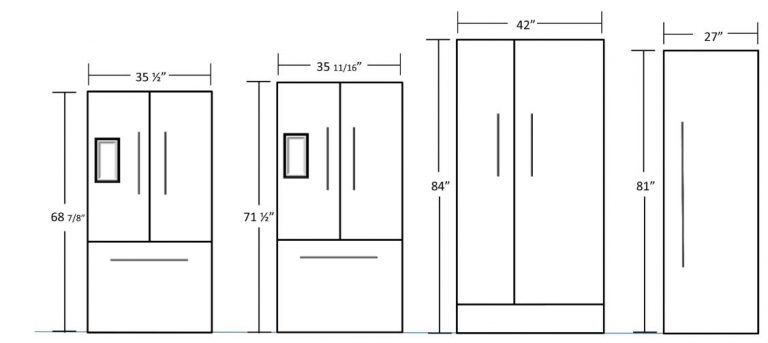
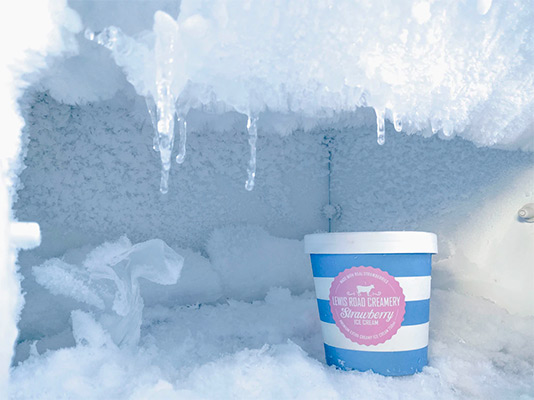
![Are GE Refrigerators Good Quality Brand? [Quick Answer!]](https://breezerfreezer.com/wp-content/uploads/2023/10/Are-GE-Refrigerators-Good-Quality-Brand.png)
